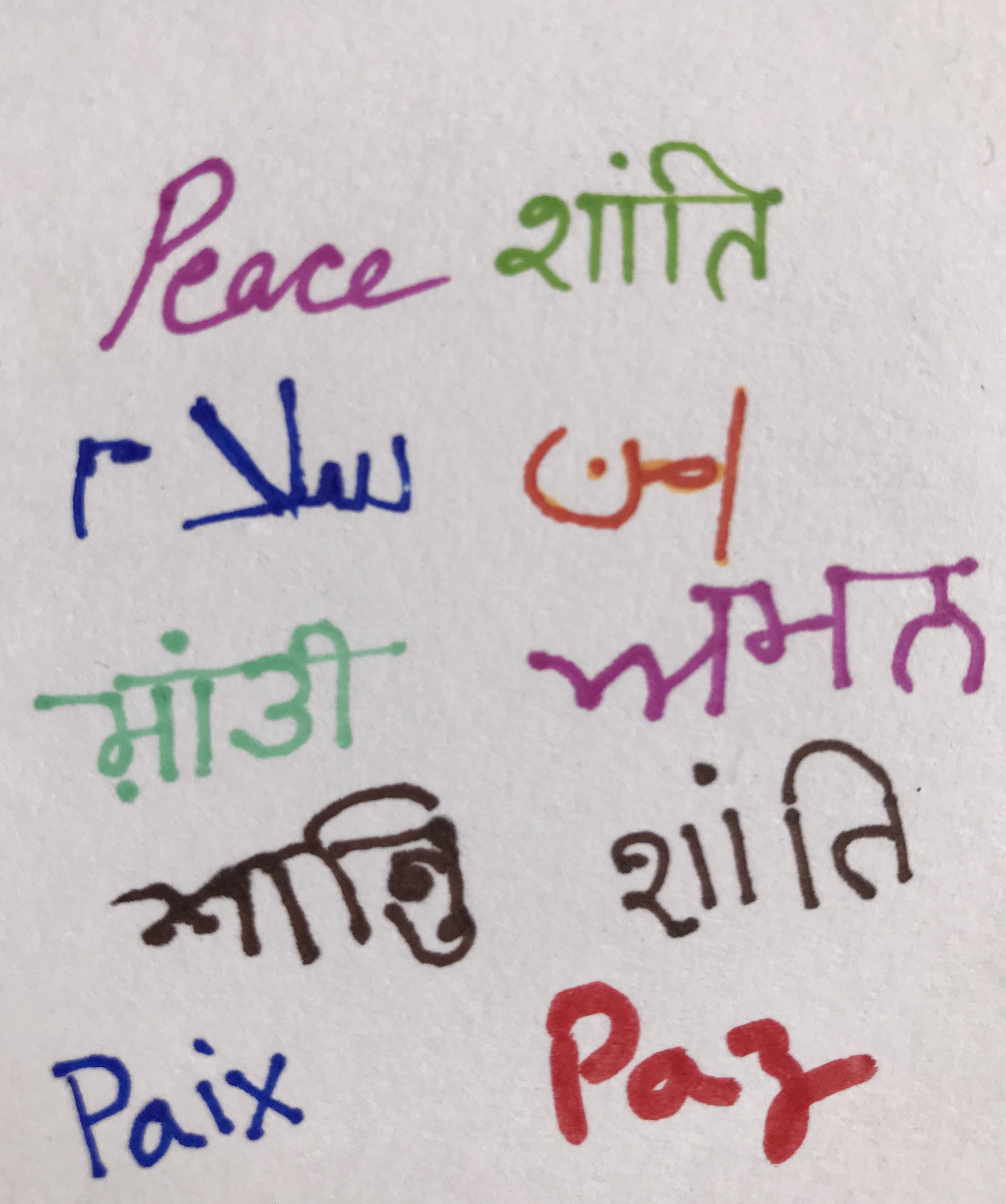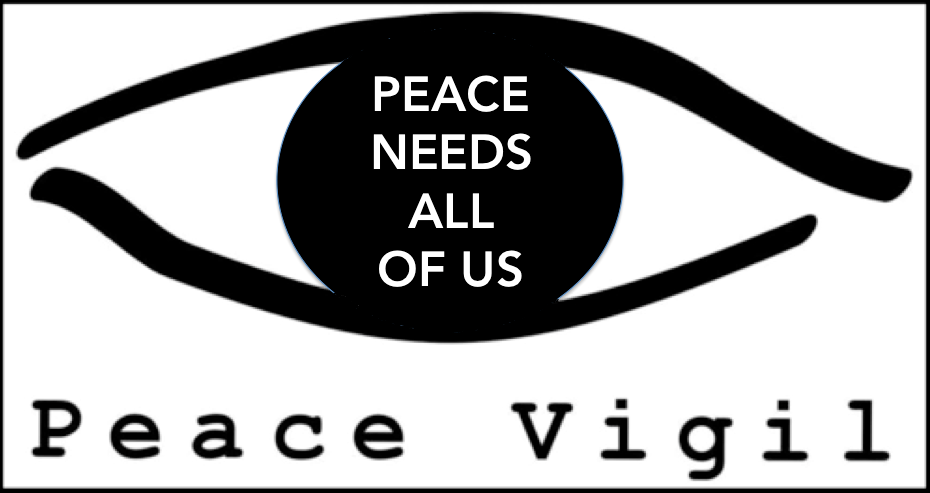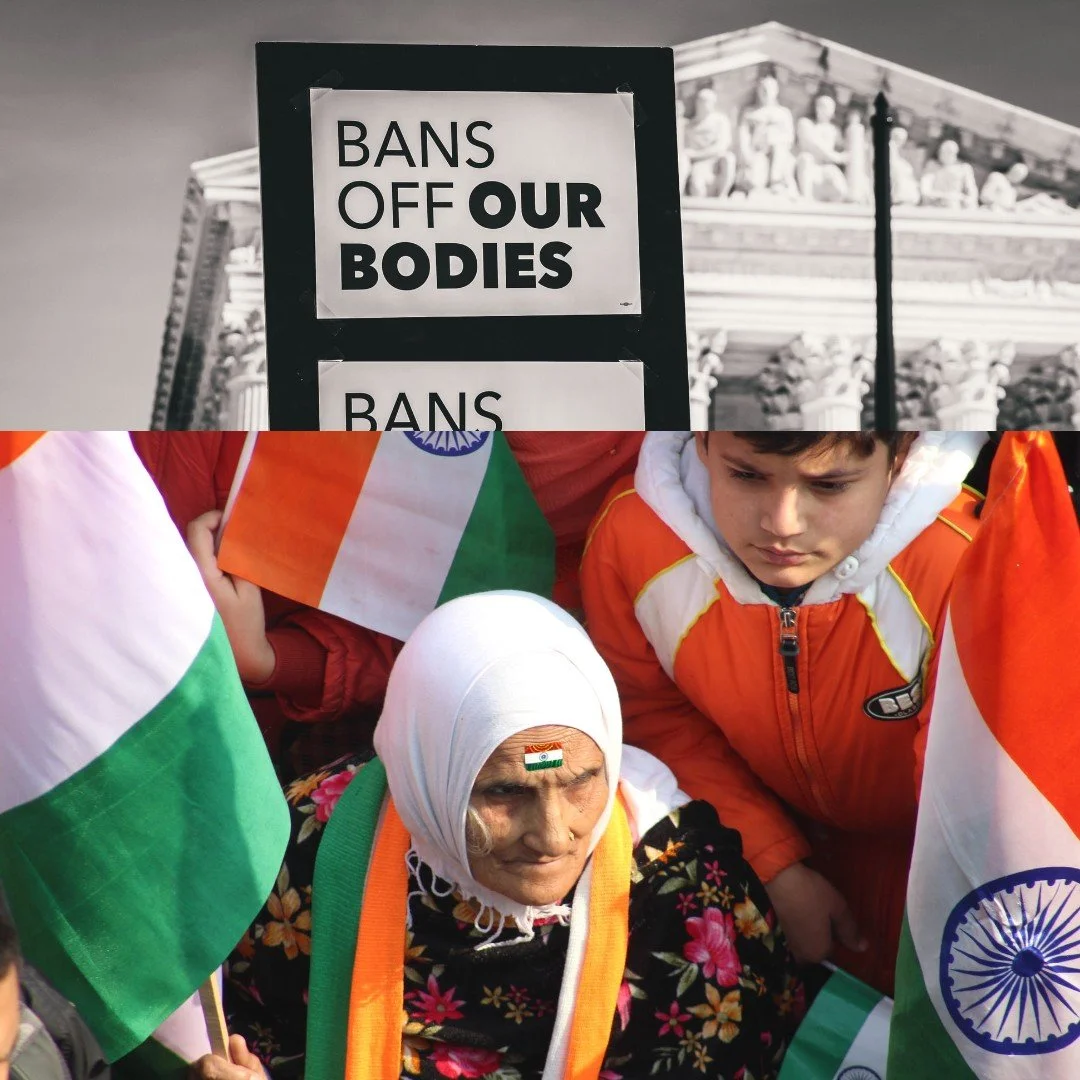Minorities Within Minorities
This is a special guest post written by Inaya Mir, a university student in the United States and a Peace Vigil intern.
What is it like to be a minority within a minority? I think the easiest summary is the feeling of being overlooked. When I talk about my experiences of not being seen, I’m usually talking about my experience of not being seen WITHIN the “minority” I belong to, more specifically, other South Asians. Minorities can feel unseen, and face hate from others, including those in said “minorities.”
While I tell people I’m “South Asian” I know in my heart that this label does not do my heritage justice. That’s a double-sided coin, as we are already a very divided people, but at the end of the day, that division exists because of the immense diversity in the region. The South Asian, or as we call ourselves, Desi, people I grew up around all have their own traditions depending on where they came from originally.
Over the last couple of years, I have interacted with a wide audience of people over TikTok. In late 2020 when I was most active on “brown TikTok”, I found myself facing comments from other South Asians that made me feel as though I was being grouped into a category I didn’t truly belong to. I would often get asked where I am from, so I’d tell them; that I’m half Kashmiri, and the other half is split between Pakistani and Bengali. But repeatedly this would be met with the response “so you’re half Indian.” My issue here was much more than the politics surrounding the region, it was with the fact that many people genuinely did not realize that Kashmir was so different from the rest of India. The culture, language, physical appearance, food, etc are all so different from other regions in India I was exposed to growing up.
I’ve seen how the Desi community can have not only an ignorant side, but also a violently hateful side. About a year ago somebody left a comment on my post that said something along the lines of, “we will kill all Muslims in Kashmir, just wait and watch.” As you can imagine, this shook me very hard. I was just an eighteen-year-old girl trying to have some fun and connect with other people like myself, and here I was reading someone on my page talk about killing my family? And what made it even worse, in my mind, was that it was coming from another South Asian. This was not some racist American white supremacist, because honestly a comment from them I could have been unbothered by. But this hit too close to home. Sure, this person and I clearly had different religions and came from different parts of South Asia so we weren’t all THAT similar, but to me, it was close enough.
I could go on for a long time about the struggles minorities within minorities face, across races, religions, and gender. Whether this is Shia Muslims facing oppression from Sunnis while also fighting general Islamophobia or transphobia against trans women by cis women. True, sometimes it isn’t always about hate or intentional harm. Sometimes it is just ignorance or lack of knowledge because we each are raised in our own bubble and until going out in the real world, are never really faced with an opportunity to see the complexities of society. Because of this, it is easy to get caught up in our own struggles and not recognize there are others suffering in similar ways. If we want to make a change in the world for ourselves, a great way to do that is by listening to others and helping them in their fights as well. Because the more we stick together, the more we can achieve. Take Yuri Kochiyama, for example. She was a Japanese-American woman who fought for countless causes throughout her life. Reading about her work actually made me quite emotional because this was a woman who would stand up for anybody and everybody who faced injustice. She was an activist for Black Americans, Asian Americans, and Latinos, and later in her life, she fought for Muslims and Arabs facing racism after 9/11. Where she saw injustice, she saw an opportunity for activism and taking a stand against hate. It did not matter who or when, she strived to make the world safer for others, motivated by her own experiences with racism. Yuri Kochiyama is the perfect example of how helping other minorities is also helping yours because people will remember you, learn about your experience, and work with you to make sure history does not repeat itself. (Read more about her here.)
Every human is different from the next. Every family, every sibling, and every individual will have their own story and background that sets them apart from the group and makes them who they are. But if the larger communities they belong to could do a better job at recognizing the parts of these individuals that make them “different” or the “minority,” then each individual has a chance to feel seen and proud of who they are. Consider for example, the new TV series, Ms. Marvel. The main character, Kamala, is not just depicted as a brown girl growing up in the States, she’s not just a Muslim-American superhero, Kamala Khan is a Pakistani Muslim-American. It's extremely specific which makes it so incredibly powerful to those who fall under a similar identity. This growth in diversity within mainstream media is exactly what minorities need to flourish. If we can recognize the general culture millions share, but also hone in on a smaller culture within that minority, we are growing the knowledge we have of “our own people” and creating better ways for us to support each other.
A key factor in creating peace and equality is recognizing more minorities within minorities. Because with more ignorance, we risk more hate. That being said, now more than ever minorities needs to unite together to fight the larger enemy of white supremacism. While I see the issue I have discussed as something that needs to be addressed within minorities, I see white supremacism as something that needs to be fought across ethnicities, races, and religions.
So, why should all of this matter to us? The truth is, in one way or another, it affects us. Because how we interact with others will eventually come back around to how others interact with us. It can be overwhelming, trying to overcome the many obstacles society has put in front of us. But if we want to be treated a certain way by other people, it is our job to show the same energy by educating ourselves and listening to our peers. So you should educate yourself, listen to what your friends are telling you. Demonstrate your interest in learning about who they are, because once you look, you might just find there is so much more to them than you ever knew.




